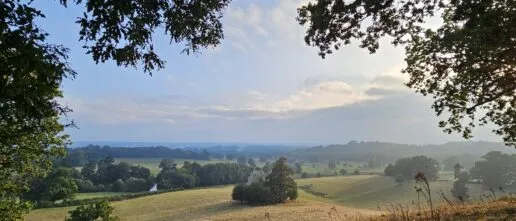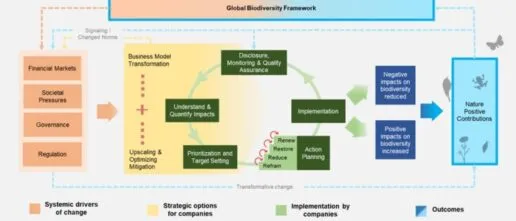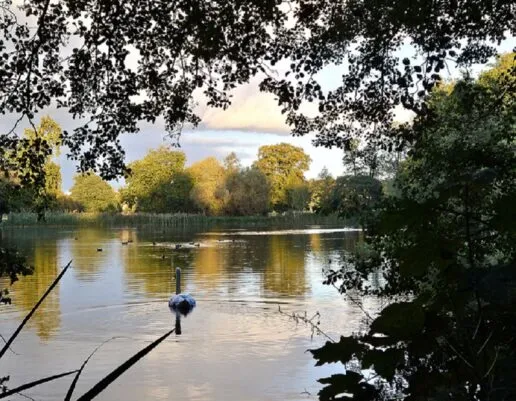About
There is an increasing expectation that the private sector will need to play an important role in delivering global nature recovery goals. However, there are currently large uncertainties associated with the processes and strategies required for actions to be effective. For example, organisations can take a range of actions across the Mitigation and Conservation Hierarchy to help deliver biodiversity outcomes, but there is a need to understand the outcomes of such actions, how these actions and outcomes will scale, and the best means of navigating trade-offs and synergies between other socio-economic and environmental goals. In addition, there is limited understanding of the overall sectoral and regulatory approaches which can best promote effective and equitable action by large organisations.
In this work package, we hope to help inform effective, equitable, scalable, and feasible strategies for organisations to address biodiversity loss by:
- Developing a research agenda to prioritise research towards key areas in organisational Nature Positive strategies.
- Investigating the methods used to measure positive and negative biodiversity impacts of organisations, and their implications for the design of Nature Positive strategies.
- Understanding when and where possible actions across the Mitigation and Conservation Hierarchy could be implemented to deliver Nature Positive goals.
- At a broader scale, looking at actions required at sectoral, national, and international levels, to ensure organisational actions contribute meaningfully towards global targets.
- Investigate the wider driving processes that can influence action and its effectiveness.
- Understand the likely outcomes of different actions taken by organisations, and in collaboration with the wider Integration work package team, investigate the likely environmental, economic, and social synergies and trade-offs if such strategies are scaled.
This work is conducted as part of the Oxford Nature Positive Hub.
Related News Articles

Businesses need ambitious, evidence-based strategies to align with Nature Positive goals
The private sector is facing increasing pressure to align with global goals to halt and reverse the loss of nature – to move beyond just mitigating any damages caused by their operations and supply chains, towards contributing positively to nature recovery on a societal scale (i.e., ‘Nature Positive’). Transformative change is needed to realise this. […]

Risks and Opportunities of using LCA-based approaches for Biodiversity Footprinting
This article, written by Thomas White and Talitha Bromwich, is a summary of a preprint available at Open Science Framework As businesses start on their nature positive journey, a range of tools and approaches are emerging to help assess risks and impacts on biodiversity. Sustainability frameworks like the CSRD and TNFD ask companies to take […]

Pioneering Nature-Positive Pathways: Organisational Approaches for delivering Nature Recovery
The Global Biodiversity Framework calls upon the private sector to contribute to nature recovery. But so much about the concept of Nature Positive is ill defined, making it challenging for businesses (and society as a whole) to understand the major shifts required to achieve it. More research is crucial to help guide and prioritize business […]
Related Research Themes

Systems
Developing a novel Analysis and Decision Platform to integrate nature recovery into land-use and infrastructure planning, and exploring scenarios that can deliver local, national and international commitments to nature, climate change and sustainable development.

Society
Encompassing the governance and socio-cultural dimensions of nature recovery.
Related Outputs
The Nature Positive Journey for Business: A research agenda to enable private sector contributions to the global biodiversity framework.
As a group of researchers and consultants working at the interface between business and biodiversity, we propose a conceptual model through which private sector contributions to a Nature Positive future could be realised and use it to identify priority research questions.
Navigating uncertainty in LCA-based approaches to biodiversity footprinting
The use of Life cycle assessment (LCA) methods is rapidly expanding as a means of estimating the biodiversity impacts of organisations across complex value chains. However, these methods have limitations and substantial uncertainties, which are rarely communicated in the results of LCAs. Drawing upon the ecological and LCA literature on uncertainty and two worked examples […]
The “nature-positive” journey for business: A conceptual research agenda to guide contributions to societal biodiversity goals
Biodiversity is rising rapidly on the global agenda, prompting businesses to adopt the “nature-positive” framing, expressing a commitment to combat biodiversity loss and contribute to global nature recovery goals. However, realizing these ambitions requires transformative changes in business operations, which will be challenging given the uncertainties surrounding possible strategies and pathways. A research-driven approach for […]
‘Nature positive’ must incorporate, not undermine, the mitigation hierarchy
For the concept of nature positive to succeed as the lodestar for international action on biodiversity conservation, it must build upon lessons learned from the application of the mitigation hierarchy — or risk becoming mere greenwash.



